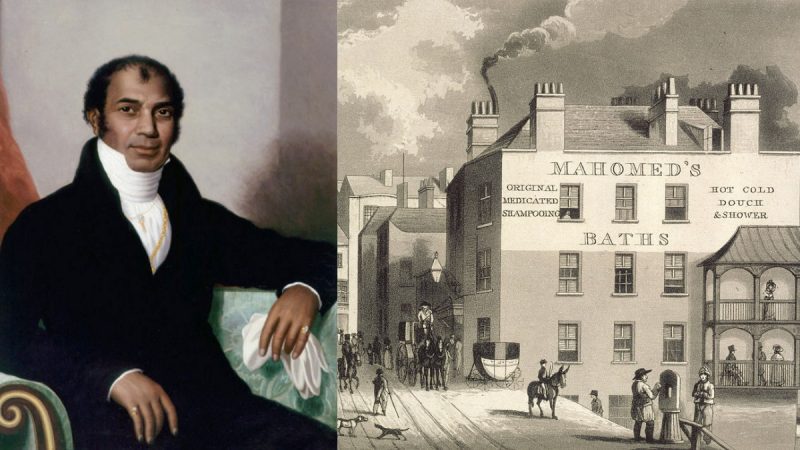In India, the tradition of “champi,” or head massage, has been a cherished ritual for centuries, deeply embedded in the country’s wellness culture. It’s a practice that not only invigorates the scalp but also relaxes the mind—a soothing experience often accompanied by the fragrant oils of India’s medicinal herbs. But few know that this humble tradition, steeped in Indian heritage, made its way across continents and oceans, finding a home in the very heart of Europe, all thanks to an extraordinary man from Patna, India: Sake Dean Mahomed.
Dean Mahomed Took Shampooing From Patna To England
Dean Mahomed, born in 1759 in the bustling city of Patna, was a pioneer and a bridge between the East and West. He introduced the concept of “shampooing” to Europe. According to some sources, Mahomed belonged to the Nai caste, traditionally known for their skills in barbering. As a trainee surgeon in the East India Company’s army, he participated in the battles against the Marathas.
Later, he accompanied Captain Baker to Ireland, which set the stage for his future achievements. In 1810, after settling in London, Mahomed made history by opening the first Indian restaurant in England—the Hindoostane Coffee House. Unfortunately, financial difficulties forced him to close the restaurant within two years.
Mahomed had a brief stint working for Basil Cochrane, a wealthy Scottish nabob who had installed a steam bath in his London mansion. It was here that Mahomed’s knowledge of Indian medicinal practices found its true calling. In 1814, Mahomed and his family moved to the seaside town of Brighton, where he established “Mahomed’s Baths”—the first commercial shampooing bathhouse in England.
Also Read: What Is HaatiApp, A Mobile App Launched In Assam & How Will It Help Curb Human-Elephant Conflicts?
Royal Recognition And Legacy
Located on Brighton’s picturesque seafront, Mahomed’s Baths offered a luxurious escape for the elite of England. The bathhouse specialised in what Mahomed called the “Indian Medicated Vapour Bath,” a therapeutic treatment that involved steaming with medicinal herbs followed by a massage with Indian oils. The process, inspired by the traditional Indian practice of “champi,” was soon nicknamed “shampooing” by his English clientele.
The bathhouse became an instant success, attracting a high-profile clientele that included the Prince of Wales, who would later become King George IV. Mahomed’s reputation as a skilled healer grew, earning him the title “The Shampooing Surgeon of Brighton.” Mahomed’s services became so esteemed that in 1822, King George IV appointed him as his personal shampooing surgeon. This royal endorsement cemented Mahomed’s place in history as a pioneer who had successfully introduced and popularised an Indian wellness practice in Europe.
Mahomed’s life had its share of challenges, including the eventual auctioning of his beloved bathhouse due to financial difficulties. However, his contributions to European wellness culture remain undeniable.
Cover Image Courtesy: Wikimedia Commons
For more such snackable content, interesting discoveries and the latest updates on food, travel and experiences in your city, download the Curly Tales App. Download HERE.

